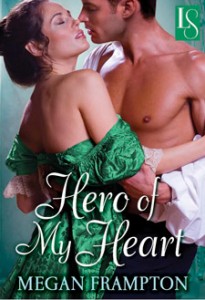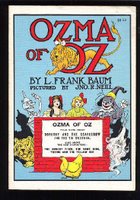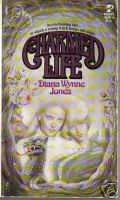 My historical, Hero of My Heart, will be released Monday, and it has a different kind of hero–in that he is not heroic at all, not when we first meet him. In fact, he is a Marquess who does not wish to have his title, nor even be alive. Here’s the blurb:
My historical, Hero of My Heart, will be released Monday, and it has a different kind of hero–in that he is not heroic at all, not when we first meet him. In fact, he is a Marquess who does not wish to have his title, nor even be alive. Here’s the blurb:
When Mary Smith’s corrupt, debt-ridden brother drags her to a seedy pub to sell her virtue to the highest bidder, Alasdair Thornham leaps to the rescue. Of course the marquess is far from perfect husband material. Although he is exceedingly handsome, with a perfect, strong body, chiseled jaw, and piercing green eyes, Alasdair is also too fond of opium, preferring delirium to reality. Still, he has come to Mary’s aid, and now she intends to return the favor. She will show him that he is not evil, just troubled.
Mary was a damsel in need of a hero, but Alasdair’s plan is shortsighted. He never foresaw her desire to save him from himself. Alasdair is quite at home in his private torment, until this angel proves that a heart still beats in his broken soul. The devil may have kept her from hell, but will Mary’s good intentions lead them back to the brink—or to heaven in each other’s arms?
Alasdair is as close to an anti-hero as I could write, and I chose to write him that way because like so many romance readers, I believe that love and compassion can help a person find their way back to happiness. I was fascinated by the idea of a man at the absolute brink of dissolution needing to claw his way back to reality, and I gave him a reason–Mary’s salvation–to do it. Eventually, he replaces his opium addiction with Mary’s sexual healing, but that isn’t enough to absolutely save him. It is only when he is able to give both Mary’s presence and opium up that he is deserving of his own Happy Ever After–and deserving of Mary.
In writing this, I was inspired by Edith Layton’s The Devil’s Bargain (and snagged her hero’s name for mine!), because her hero is tortured by the past, just like my Alasdair, even if he doesn’t end up an opium addict. Of course there have been historicals where the hero is addicted–most memorable is Jo Beverley’s To Rescue a Rogue and of course Mary Jo Putney’s The Rake‘s hero is an alcoholic.
I also wanted to write a classic road story–in fact, the original title of the book was Road to Passion, which a few people pointed out sounded like a Bob Hope movie, which was not the intent, so I changed it. My hero and heroine are together almost through the entire course of the book, are forced together through circumstances and can’t run away from their problems–like Alasdair was trying to do.
All of this makes it sound as though Alasdair and Mary are all Dark and Serious during the course of the book, but both of them have good senses of humor and Mary, in particular, does not hesitate to take Alasdair down a notch or two (and he is highly-notched, let me tell you!).
Do you like books with very difficult heroes? Which are your favorites?






